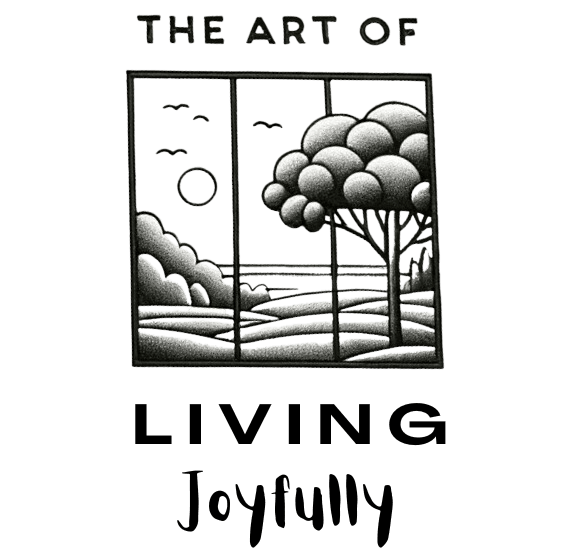The Mental Health Benefits of Pursuing Passions and Hobbies After 50
As we age, nurturing our mental well-being becomes increasingly important. While physical exercise and healthy eating are vital, pursuing passions and hobbies is another essential yet often overlooked factor for brain health after 50.
Recent studies demonstrate that engaging in mentally stimulating activities enhances cognitive abilities and memory. Learning new skills creates new neural pathways and connections in the brain, boosting overall brain performance. For example, picking up a musical instrument, studying a foreign language, or doing puzzles and logic games are great ways to keep our brains sharp.
A 2018 study published in the Journal of the American Geriatrics Society found that seniors who engaged in regular mentally challenging activities had a 50% lower risk of cognitive impairment.
https://onlinelibrary.wiley.com/doi/full/10.1111/jgs.15241
Another 2019 study from the Mayo Clinic showed that engaging in intellectually stimulating hobbies lowered the risk of mild cognitive impairment by up to 48%. https://n.neurology.org/content/92/7/e748
Some engaging brain-stimulating activities to consider include:
- Learning a language: Platforms like Duolingo make it fun and accessible to pick up a new language. Studies show bilingualism has cognitive benefits and delays the onset of dementia.
https://www.ncbi.nlm.nih.gov/pmc/articles/PMC1589598/ - Playing chess and strategic games: The complex thinking required boosts working memory, focus, and problem-solving skills.Joining a local chess club is a great way to engage.
- Learning a musical instrument: Learning to play an instrument engages multiple regions of the brain, and musical training is linked with enhanced memory. https://dana.org/article/the-cognitive-benefits-of-learning-and-playing-music/
- Knitting, sewing, woodwork, and crafts: Studies show crafting keeps the brain active and lowers anxiety and depression. The focused, hands-on process stimulates neural connections.
https://www.ncbi.nlm.nih.gov/pmc/articles/PMC4627679/ - Reading and writing: Reading boosts vocabulary, focus, and concentration. Writing stories or journaling also improves cognitive function. Joining a book club provides social engagement.
- Card games and board games: The social interaction and cognitive engagement from games like chess, checkers, bridge and mahjong stimulate the brain.
- Puzzles and problem-solving: Crosswords, jigsaws and sudoku improve memory, reasoning and focus. Picking up logic and puzzle books full of brain teasers is an easy way to engage this hobby daily.
Beyond cognitive benefits, hobbies also provide a sense of purpose and fulfillment. The transition into retirement or the empty nest can lead to feelings of loneliness and isolation. Pursuing hobbies and passions is a productive way to fill that void. They allow us to connect with others who share our interests, cultivating new friendships and support systems.
According to a 2020 survey by AARP, over 60% of adults 50 and older reported that hobbies help them feel purposeful and engaged with life. https://www.aarp.org/research/topics/life/info-2020/pandemic-impact-social-ties.html
Similarly, a 2019 study published in Activities, Adaptation, and Aging found that pursuing hobbies reduced feelings of loneliness and depression in older adults. https://www.tandfonline.com/doi/abs/10.1300/J016v43n02_05
Finding recreational clubs, circles, or classes related to your hobbies is a great way to connect with like-minded individuals. For example, joining a local hiking group, book club, or woodworking class can lead to meaningful social engagement. Having a sense of community and belonging through a shared interest is profoundly beneficial.
Engaging in hobbies can also effectively reduce stress and promote relaxation in daily life. Activities like gardening, baking, arts and crafts allow us to immerse ourselves in an enjoyable process, providing an escape from worries.
A 2015 study published in the Annals of Family Medicine found that engaging in a creative hobby for just 45–60 minutes per day decreases the stress hormone cortisol by over 30%. https://www.annfammed.org/content/13/6/573
Similarly, an analysis by the Mayo Clinic Proceedings found that engaging in crafting hobbies significantly reduced anxiety and stress levels. https://www.mayoclinicproceedings.org/article/S0025-6196(20)31489-0/fulltext
Consider incorporating relaxing yet mentally engaging hobbies into your daily or weekly routine for better stress management. Activities like gardening, painting, journaling, or even baking are great options. Make your hobbies an oasis from daily worries by focusing intently on the present moment.
Trying new pursuits can also facilitate personal growth and self-discovery. Stepping outside our comfort zones to learn new skills and take on challenges is incredibly fulfilling at any age.
A 2019 study by researchers at Western University even found that acquiring a new hobby led to increased life satisfaction and well-being among older adults. https://pubmed.ncbi.nlm.nih.gov/31523767/
Learning something new requires dedication but brings a profound sense of achievement. It expands our identity and worldview. Consider an activity you always wanted to try but never had the time – not having the pressures of career and family means there are no more excuses! Use this stage of life as an opportunity for self-actualization through your passions.
In summary, actively pursuing diverse passions and hobbies is vital for maintaining mental sharpness, purpose, and well-being after 50. Stimulating the mind, connecting with others, reducing stress, and facilitating personal growth are just some of the key benefits.
The key is to explore a variety of mentally engaging activities that align with your interests. With endless possibilities like languages, crafts, music, puzzles, and more, you can build a routine that keeps your brain healthy and your life vibrant. Don’t let age limit your self-expression and sense of adventure. Pursuing your passions is a lifelong journey of learning and fulfillment.







